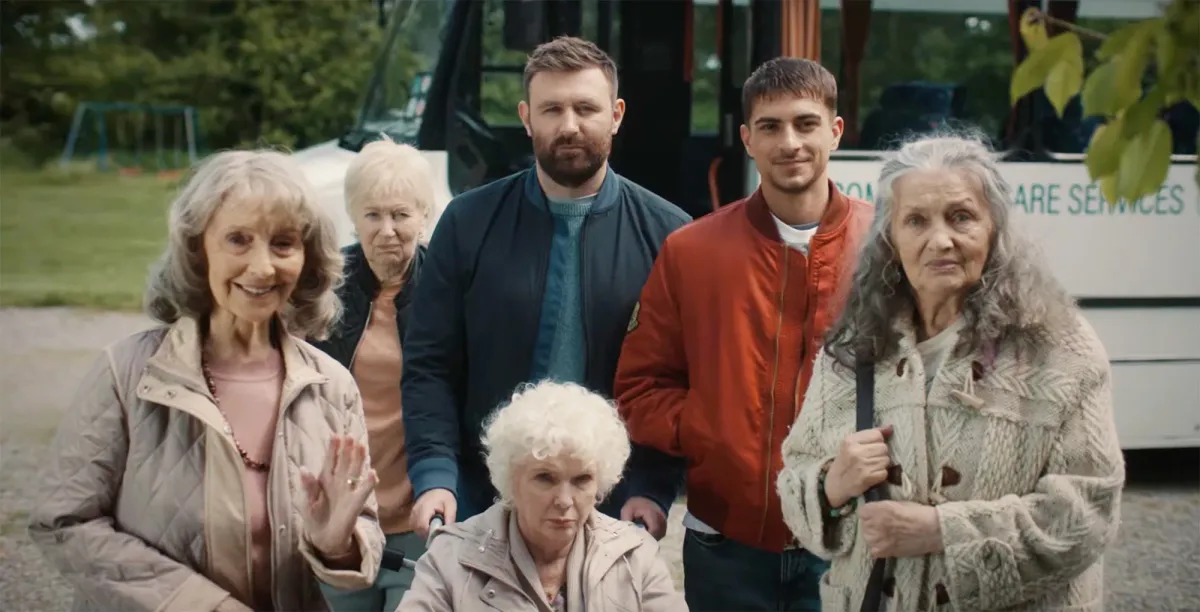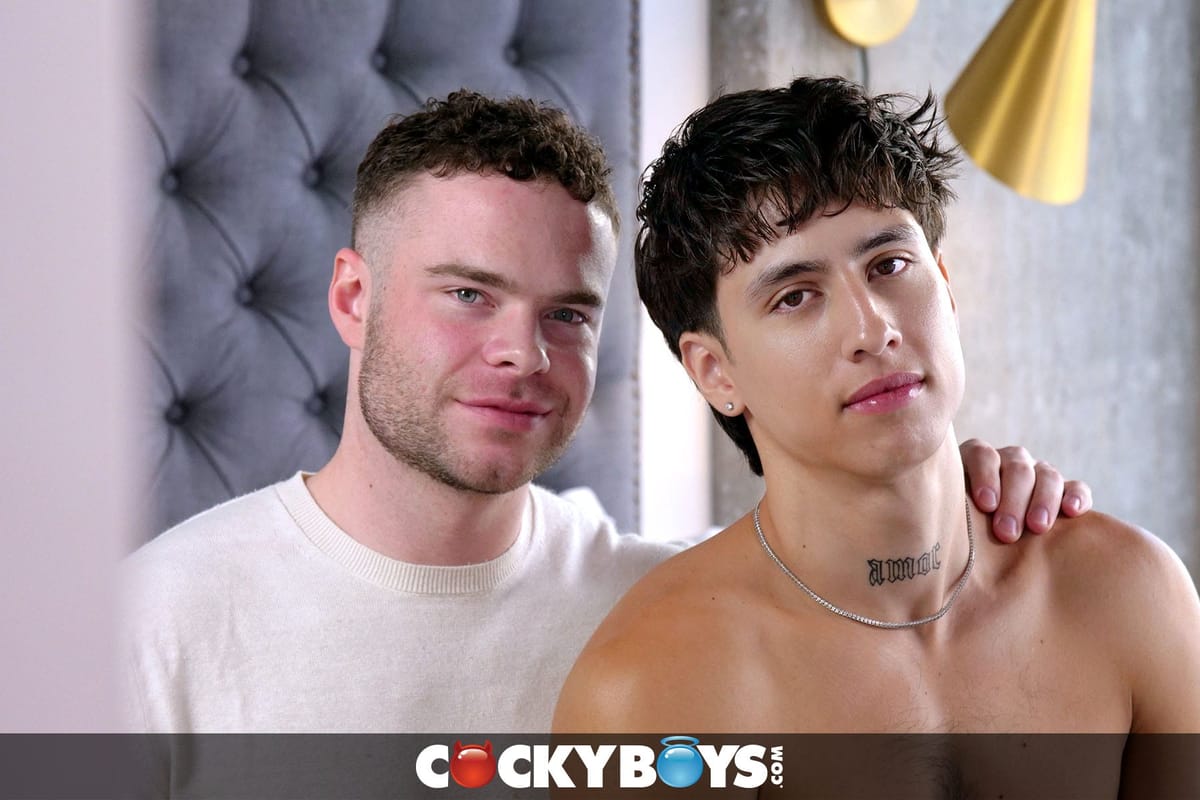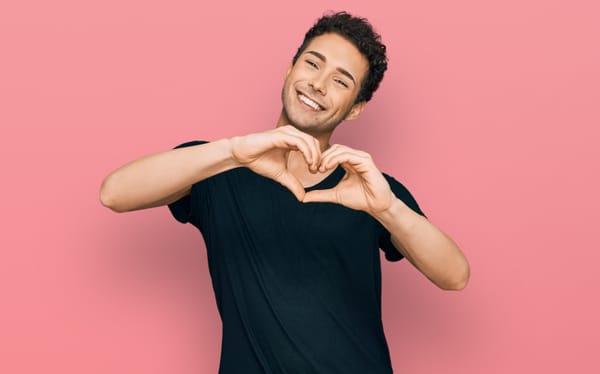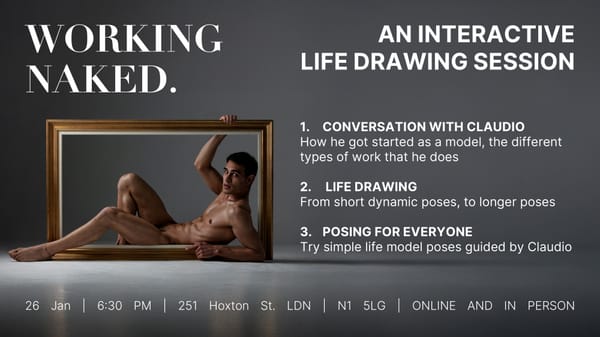Culture Watch: Four Mothers
A heartfelt comedy that explores a gay man's experience of caring for his mother.

The latest project from fraternal filmmaking duo, Darren Thornton and Colin Thornton, is Four Mothers.
This is a heartfelt Mother/Son comedy, with extra mothers.
At the centre of the story is Edward (James McArdle) - balancing his career as a writer with being a full-time carer to his mother, Alma (Fionnula Flanagan). Things are hard enough for Edward, but extra complications ensue when his friends abscond to Gran Canaria and land Edward with three extra mothers to care for.
Following the film's screening at Flare - London's LGBTQ film festival - I caught up with Darren and Colin Thornton for a behind-the-scenes look at Four Mothers.
We're speaking just ahead of the general cinema release - you must be confident that audiences are going to respond warmly to this film? How does that feel given that your initial inspiration was such a deeply personal one for you both in terms of caring for your own mother?
Darren: I mean, yeah, good. Also a healthy amount of nervousness just because - working in independent films but also being fans of independent cinema - every year you see these great films that just don't get there, you know, don't get to find a wider audience.
There's been a lovely momentum with the film and a lovely response from any of the screens that we've been at, but you never really know until it until it opens wide on that first weekend and those numbers come back on the Monday morning.
Colin: When I woke up this morning, I had gotten so many photos of gay men at the cinema with their moms for our Advanced Mother's Day screenings. That's so joyful and so exciting. The response that we got at Flare was really special as well. So to finally have it coming out in cinemas and to feel all of that is really special.
You mentioned the screenings at Flare - I saw it there at a public screening and the audience really seemed to connect with the characters and what they were navigating through. How challenging was it to balance finding the humour in this story without trivialising that these were people who had lost their voice and their sense of purpose in fairly bleak circumstances?
Darren: That's always the space that we're trying to inhabit - where you can have a certain degree of raw emotion and then lightheartedness and comedy. You know, the ability to be able to oscillate between both of those two things is what we love and what we kind of want to do all the time as filmmakers. That's what we're drawn to.
It's always a challenge as well - not so much from the writing point of view, but it's always a challenge when we're making the film. It's always a challenge to get the actors to be on the same frequency that we're on because sometimes they'll want the comedy to be in a higher register and we're trying to sort of convince them that no, we need to kind of stay within this bit of space here and stuff like that.
It also becomes a challenge when you're in the cutting room then because you're trying to find the film's pulse and sometimes you've got comedy that's at a certain point and drama that's really, really kind of dark, and you're sort of negotiating between those two things the whole time.
Colin: One of the rules we set a rule for ourselves very, very early into this film - which really helped - was that it's a drama first and a comedy second. We always kept coming back to that.
You've talked about your process and that you like to have a lot of takes - you've got a lot of material to work with when you get to the edit. If you've got a rule that if we're to compromise anything then we'll compromise the comedy and go for the drama - that's an interesting dynamic, isn't it?
Colin: It can be hard to do as well because we love comedies and we actually love writing comedy and we when we're writing comedy we kind of make ourselves laugh a lot but then in terms of the bigger picture, it's going to undermine the film as a whole.
There's an alternate universe where this could just be slapstick comedy from beginning to end? That decision to prioritise the drama - was that driven by your personal connection to the inspiration for the story and what you've been through with your mother ?
Darren: Yes, but it's also just our taste. We love comedy but also get frustrated with a lot of comedy when it abandons the the truthfulness that they've created around the characters for the sake of a really broad comedic sequence. Now, I love broad comedic sequences as well, but I want them to stay true to whatever magic they've created around the situation and the characters and stuff like that.
With an aging population, navigating the care of parents seems to be something that many of us are trying to figure out. The film highlights some of the personal and familial tensions that can arise through that, particularly for gay men. In the screenings and the Q&As that you’ve had, what sort of response have you had from gay men who have seen the film? Is it resonating with men who share parts of Edward’s experience?
Darren: I was in Chicago and LA with the film a little while ago. When the screening ends there'll usually be a handful of guys in my periphery vision and I can tell that they're waiting until other people have cleared so that we can have a moment and I know that they're going to want to share their experience of being a carer for their mum. It's really powerful and moving - just hearing their experience of it and that sense that they feel like the film has seen them in some way.
Colin: When I was in my 20s and 30s, my circle of gay friends was so mixed in terms of ages - I had some very close friends who were older than me at that time who were carers for their mums. So I somewhat understood the experience that they went through because of the closeness of our friendship. But it wasn't until myself and Darren became carers for our own mum that I fully understood the complexity of that.
Loneliness is a theme that’s explored in the film, but Edward is probably luckier than most? He has friends he’s able to share his experiences with, he’s got a sexy ex that is on hand to help out, and he’s got a career that’s going really well. In a way, it’s the fantasy version of a story that in real life is often the complete opposite of all of that. Does the film have a point of view in terms of all of that? Is it a commentary on the rise of individuality and the decline in community?
Darren: It's really just telling the human story. Insofar as there's a point of view around that, it's just to sort of draw attention to the fact that we're all going to be in both places at some point. We're all going to be the carer and we're all going to be in need of care. We forget that when we're living our lives - we forget that at a certain point we are going to be in both of those roles. This is coming for all of us and it's funny and tragic and a whole bunch of things all at once.
Colin: I'm always kind of amused when people say, "the friends are abominable". For us, it was about looking at all of these people and the loneliness that they were experiencing and feeling like you're not being seen. People who've been through it get it. It's so confronting watching somebody disintegrate in front of you and trying to help them. It doesn't surprise me how far people will go to try to avoid that pain.
Four Mothers is released in UK and Irish cinemas 4th April
The NSFW edition
If you want to admire some man-on-man action, our NSFW edition gives you every inch.
Sign in and check out our NSFW content - it's free!










